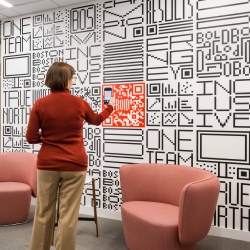To provide the best experiences, we use technologies like cookies to store and/or access device information. Consenting to these technologies will allow us to process data such as browsing behaviour or unique IDs on this site. Not consenting or withdrawing consent, may adversely affect certain features and functions.
The technical storage or access is strictly necessary for the legitimate purpose of enabling the use of a specific service explicitly requested by the subscriber or user, or for the sole purpose of carrying out the transmission of a communication over an electronic communications network.
The technical storage or access is necessary for the legitimate purpose of storing preferences that are not requested by the subscriber or user.
The technical storage or access that is used exclusively for statistical purposes.
The technical storage or access that is used exclusively for anonymous statistical purposes. Without a subpoena, voluntary compliance on the part of your Internet Service Provider, or additional records from a third party, information stored or retrieved for this purpose alone cannot usually be used to identify you.
The technical storage or access is required to create user profiles to send advertising, or to track the user on a website or across several websites for similar marketing purposes.
 brandx, a global team shaping the standard for innovative wayfinding strategies, signage systems, and brand experiences, is pleased to announce its official launch as a specialty partner of international architecture and design firm HLW. In a world where individuals are exposed to thousands of visual messages every day, brandx cuts through the clutter by creating intuitive connections that redefine how users safely and efficiently interact with brands, as well as their physical surroundings. (more…)
brandx, a global team shaping the standard for innovative wayfinding strategies, signage systems, and brand experiences, is pleased to announce its official launch as a specialty partner of international architecture and design firm HLW. In a world where individuals are exposed to thousands of visual messages every day, brandx cuts through the clutter by creating intuitive connections that redefine how users safely and efficiently interact with brands, as well as their physical surroundings. (more…)



































September 5, 2023
Working from home won’t last forever… will it?
by Zain Ali • Comment, Flexible working, Technology